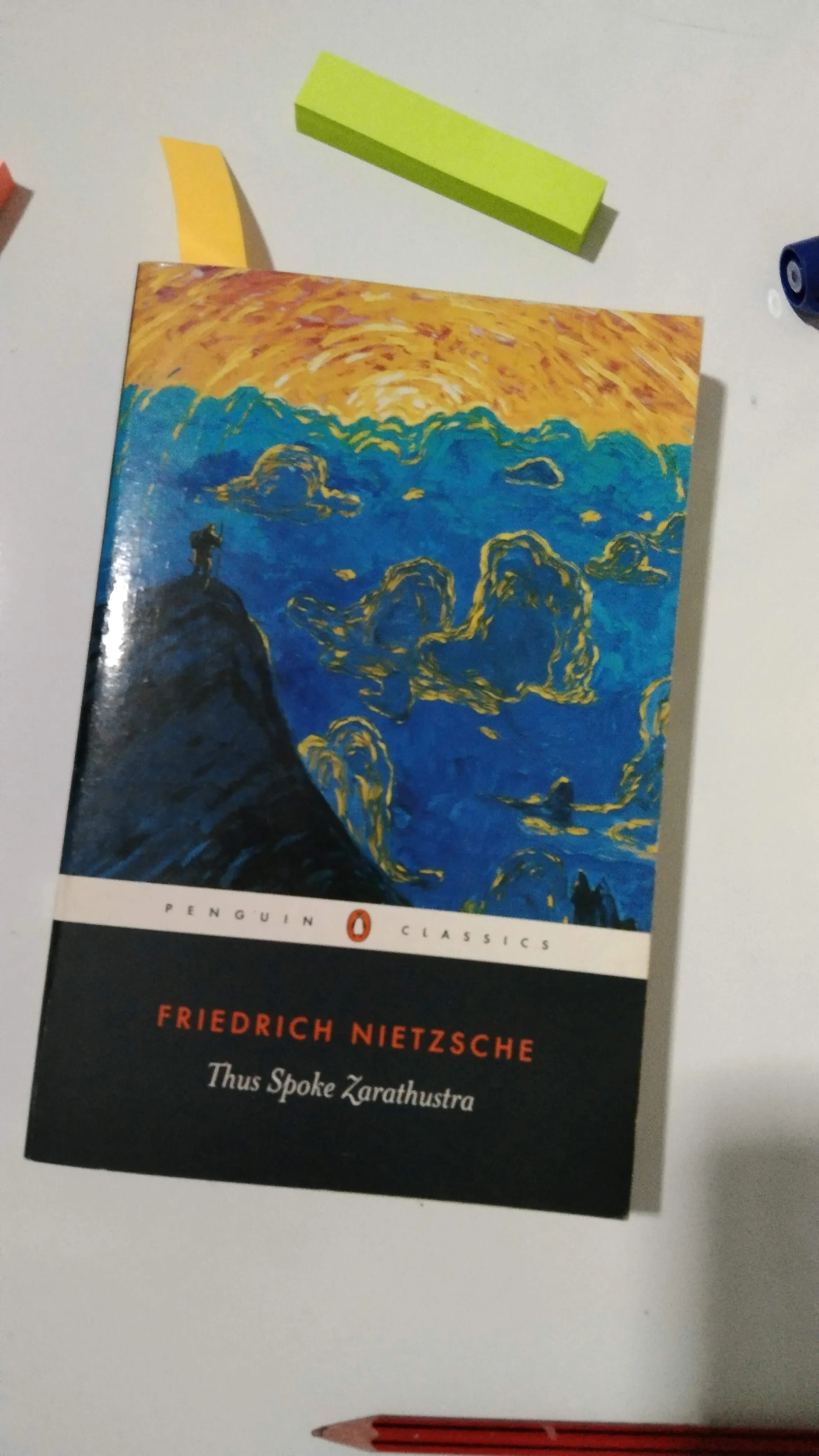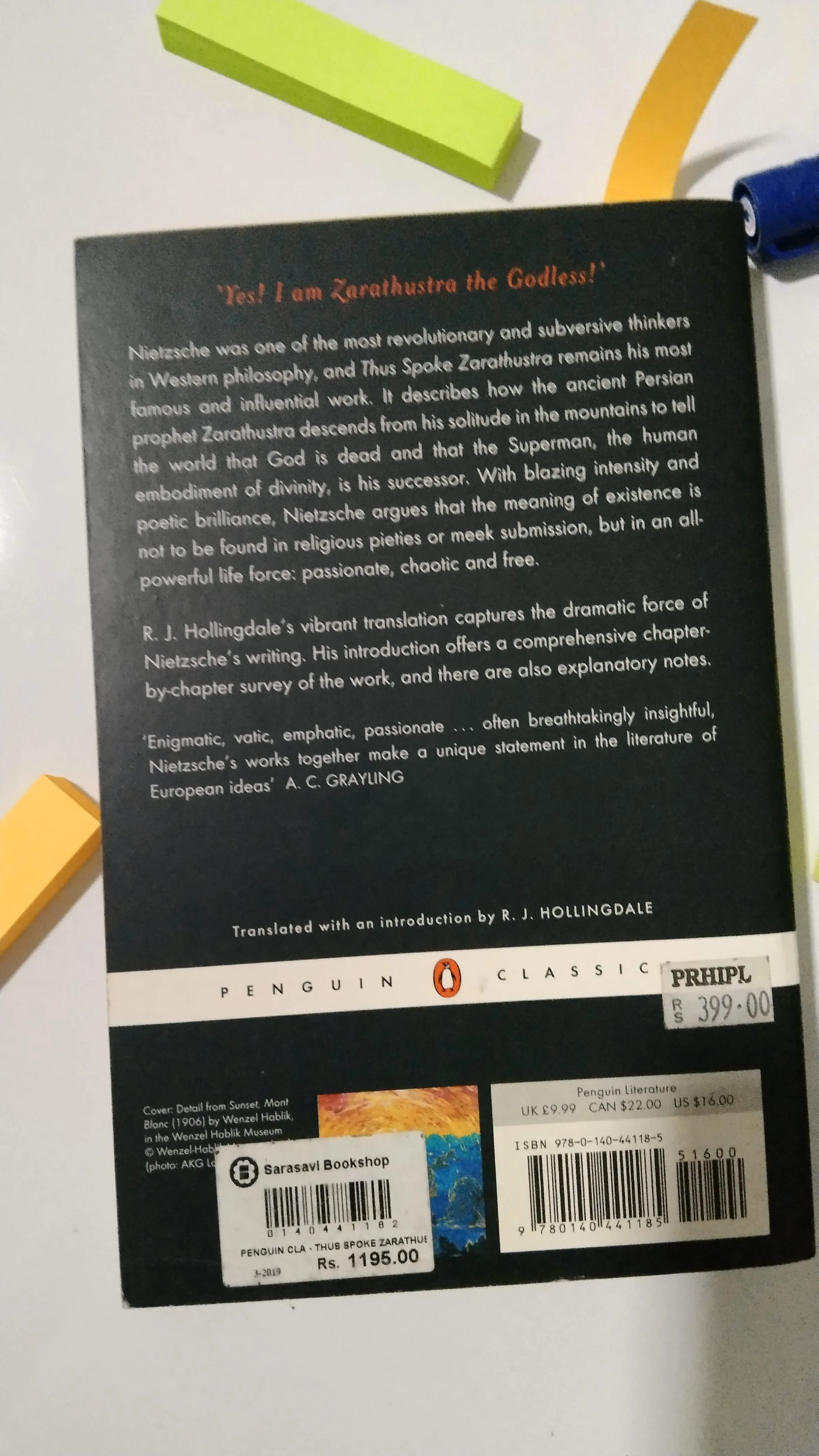Thus Spoke Zarathustra
by Friedrich Nietzsche
Journey and teachings of the prophet Zarathustra, as he descends from his solitude in the mountains to share his philosophy of the 'superman' with the people, and ultimately to overcome the traditional morality and values of his time.



"The greatest weight. What, if some day or night a demon were to steal after you into your loneliest loneliness and say to you: 'This life as you now live it and have lived it, you will have to live once more and innumerable times more; and there will be nothing new in it, but every pain and every joy and every thought and sigh and everything unutterably small or great in your life will have to return to you, all in the same succession. The eternal hourglass of existence will be turned once more, and you with it, speck of dust!"
- Friedrich Nietzsche, Thus Spoke Zarathustra
My Review:
"Thus Spoke Zarathustra" by Friedrich Nietzsche is a philosophical novel that explores the concept of the "superman" or "Übermensch." The book is written in a unique style, using a fictional character, Zarathustra, as a mouthpiece for Nietzsche's ideas.
The book is divided into four parts, each of which deals with different aspects of the "superman" concept. In the first part, Zarathustra descends from his solitude in the mountains to share his ideas with humanity. In the second part, he addresses the concept of eternal recurrence and the importance of living in the present moment. The third part deals with the idea of the "superman" as a higher being who transcends traditional morality and values. And in the fourth part, Zarathustra returns to his solitude, having imparted his teachings to humanity.
Nietzsche's writing style is both poetic and philosophical, with a focus on the use of metaphor to convey his ideas. The book is not an easy read, and requires careful attention to fully understand the concepts being presented.
One of the main themes of the book is the concept of the "superman" as a higher being who transcends traditional morality and values. Nietzsche presents the idea that traditional morality and values are based on a "slave mentality" and that true freedom can only be achieved by embracing one's individual will to power.
Another important theme is the concept of eternal recurrence, which holds that all events in the universe repeat themselves infinitely. Nietzsche argues that this concept can be used as a tool for living in the present moment and embracing one's own mortality.
The book also deals with the concept of the "eternal return of the same," which holds that all events in the universe repeat themselves infinitely. Nietzsche argues that this concept can be used as a tool for living in the present moment and embracing one's own mortality.
Some of the lessons I learned from this book are:
- The concept of the "superman" or "Übermensch" as a higher being who transcends traditional morality and values.
- The importance of embracing one's individual will to power to achieve true freedom.
- The concept of eternal recurrence, and the importance of living in the present moment.
- The idea that traditional morality and values are based on a "slave mentality"
- The concept of the eternal return of the same, and how it can be used as a tool for living in the present moment and embracing one's own mortality.
- The metaphorical style of writing used by Nietzsche to convey his ideas.
- The importance of careful attention while reading the book to fully understand the concepts presented.
- Nietzsche's views on morality and the rejection of traditional morality.
- The rejection of traditional values and the embracing of individuality as a means of personal growth.
- The importance of Zarathustra's message for the future of humanity.